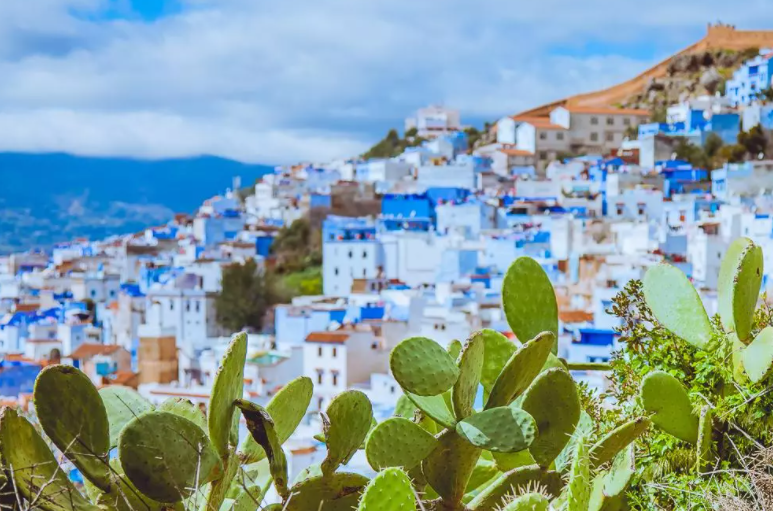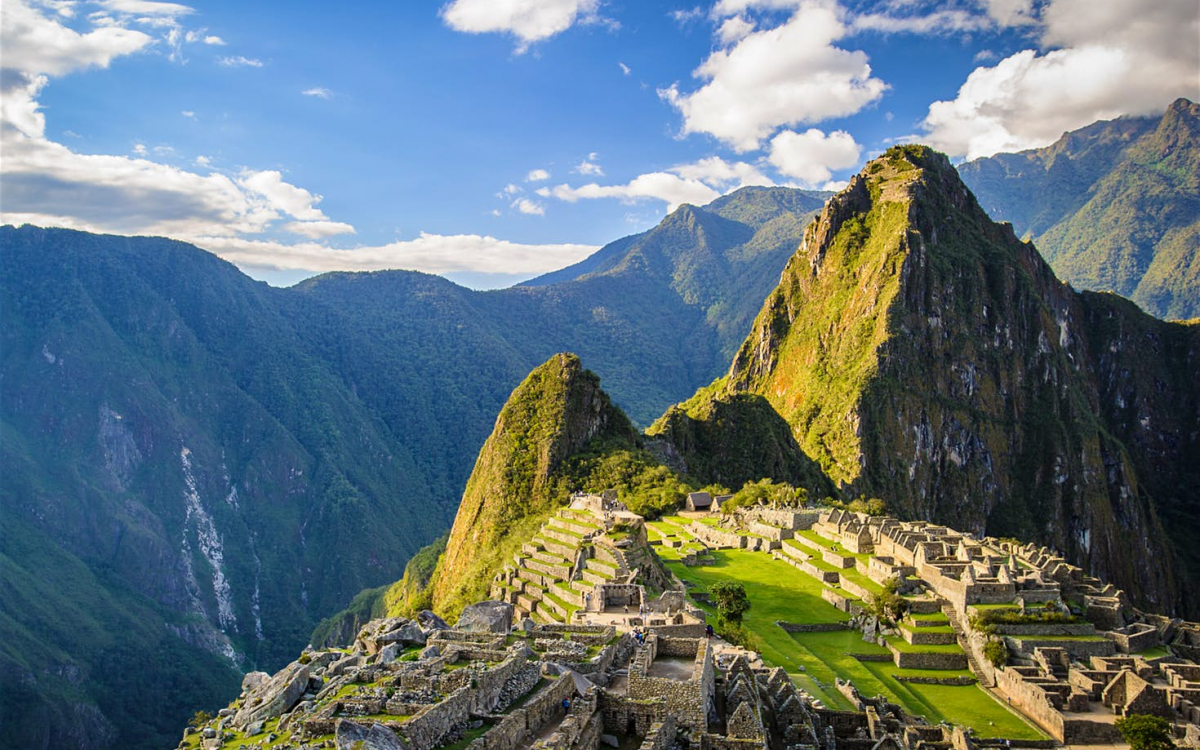Top ‘Bucket List’ Travel Experience in Europe
| Top 7 ‘bucket list’ travel experience in Africa | |
| The Best "Bucket List" Travel Experiences in South America | |
| The Most "Bucket List" Travel Experiences In Oceania |
Going to the top of the Eiffel Tower in Paris
Going up the Eiffel Tower is one of the great travel thrills in Europe. Sure, it's crowded and expensive, and other spots in Paris offer (arguably) better views. But once you make the eye-popping ascent — and ear-popping descent — you'll be in the exclusive society of some 250 million people who have made the Eiffel Tower one of the most visited monuments in the world.
The first visitors ascended in 1889, the year the Paris World's Fair opened with the tower as its grand centerpiece. Put together like an 18,000-piece erector set, made of iron beams held together with 2.5 million rivets, the tower was a pure showpiece, with no functional purpose. It was meant to demonstrate to the world that France had the know-how and money to erect the tallest structure in the world.
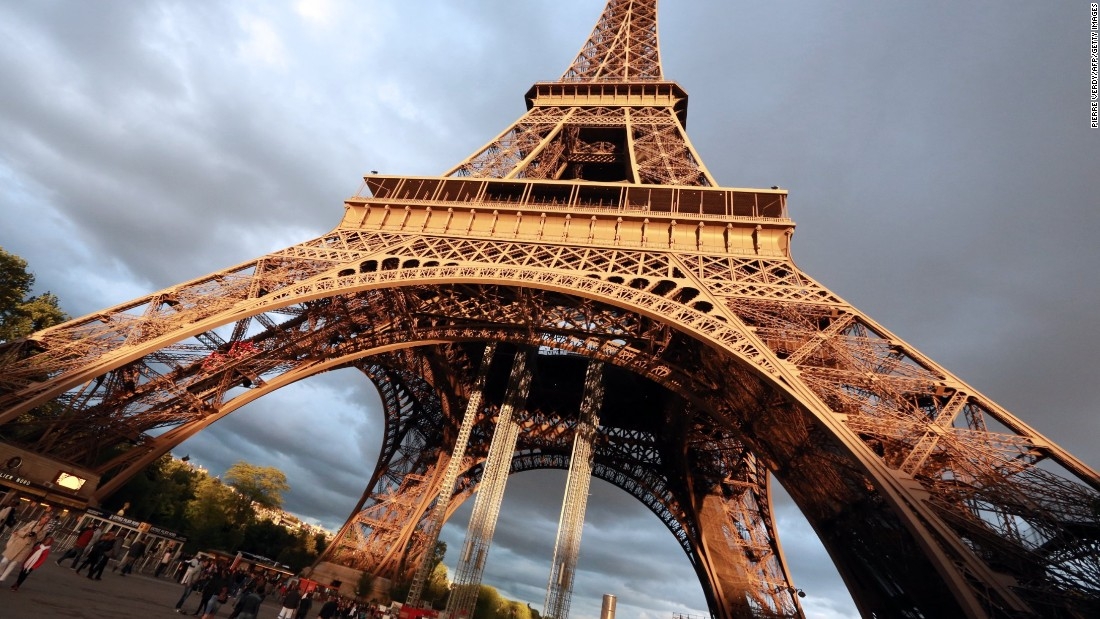 |
| Eiffel Tower. Photo: CNN |
Remarkably, the original plan was to dismantle the tower after 20 years. But designer Gustave Eiffel — an inveterate tinkerer — added a radio antenna and telegraph transmitters to the top, and the French government decided they'd made the tower too useful to tear down. (The French ended up using one of the transmitters to jam German radio communications during World War I.)
To visit this 1,000-foot-tall ornament today, you'll battle crowds and pay about $0 per person (for the elevator to the top) — but it's well worth it. Here are my tips for making it fun, time-efficient, and memorable:
For the best of all worlds, plan to arrive close to sundown to see the views, then stay as it gets dark to see the lights. At the top of the hour, a five-minute display features thousands of sparkling lights lassoing the tower (best viewed from below, either from right across the river at Place du Trocadéro, or the grassy park just under the tower). However impressive it may be by day, the tower is an awesome thing to behold at twilight, when darkness fully envelops the city, and the tower is resplendent with its spectacular light show, according to Rick Steve’s Europe.
Exploring Rome’s Colosseum
An enduring icon of the Roman World, the Colosseum is a 620 by 513 feet elliptical building, once the site of an artificial lake. The lake was drained to make way for the Colosseum, to signify the end of a tyrannical rule. Built to accommodate 60,000 seated people and another 10,000 standing guests, at any given time the amphitheatre was crowded with at least 70,000 spectators.
The outer facade of the building, equivalent to a 12-story building, has columns and arches built using different styles; Tuscan at the bottom, Ionic in the middle, and Corinthian at the top. Instead of arches and columns on the fourth level of the Colosseum, the building features small windows. While the rest of the Colosseum was mainly white, the Arena was made using red and black stone blocks. The Romans covered the arena’s wooden floor with sand to prevent the combatants from slipping and make cleaning easy post gladiator fights!
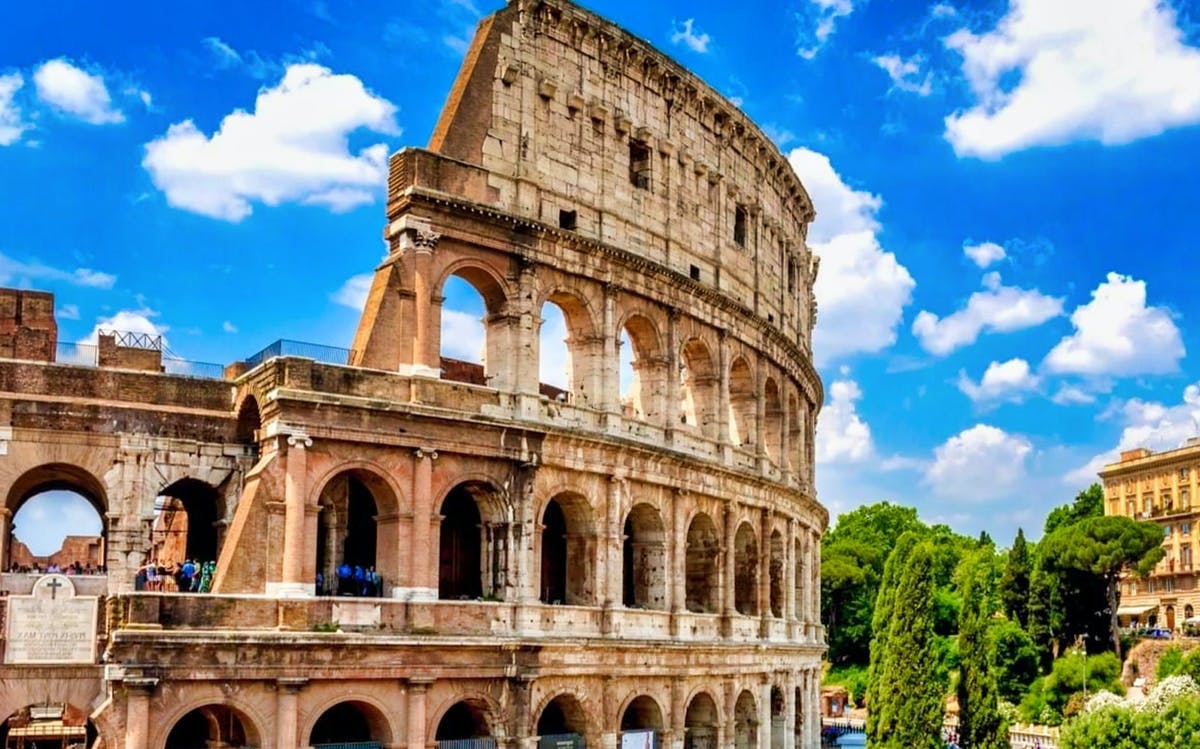 |
| Rome's Colosseum. Photo: Headout |
As reported by Head Out, the arena also had lifts, special machinery and trap doors to release animals into the action floor. A special structure, called the Hegmata, was used to lift heavy animals from the hypogeum (an underground network of tunnels and chambers) onto the arena. Combatants entered the arena through a Gate of Life whereas the Gate of Death was used for the exit of the victorious and gladiators killed during the fight! While the Underground and the Belvedere (the top level) were not accessible to the public for the longest time, don’t miss out on travelling back in time as these exclusive areas have recently opened to tourists.
Partying in Ibiza
Playa d'en Bossa on the east coast of the island, just south of Ibiza town, boasts the longest beach of the island and a pulsating nightlife. Here you will find a myriad of restaurants and bars for all tastes and budgets, smaller clubs like Sankeys and super-clubs like the world famous open-air venue Ushuaïa and the neighbouring Hï Ibiza, the newest club on the island.
San Antonio, on the west coast of Ibiza, is home to the world famous sunset strip and its cafés, as well as having a broad beach and very lively town centre with lots of bars and smaller nightclubs. Daytime open-air clubbing around the pool can be experienced at the beach club O Beach Ibiza or at Ibiza Rocks Hotel. At night the party continues until dawn in the large clubs Eden and Es Paradis right next to the palm tree-lined promenade.
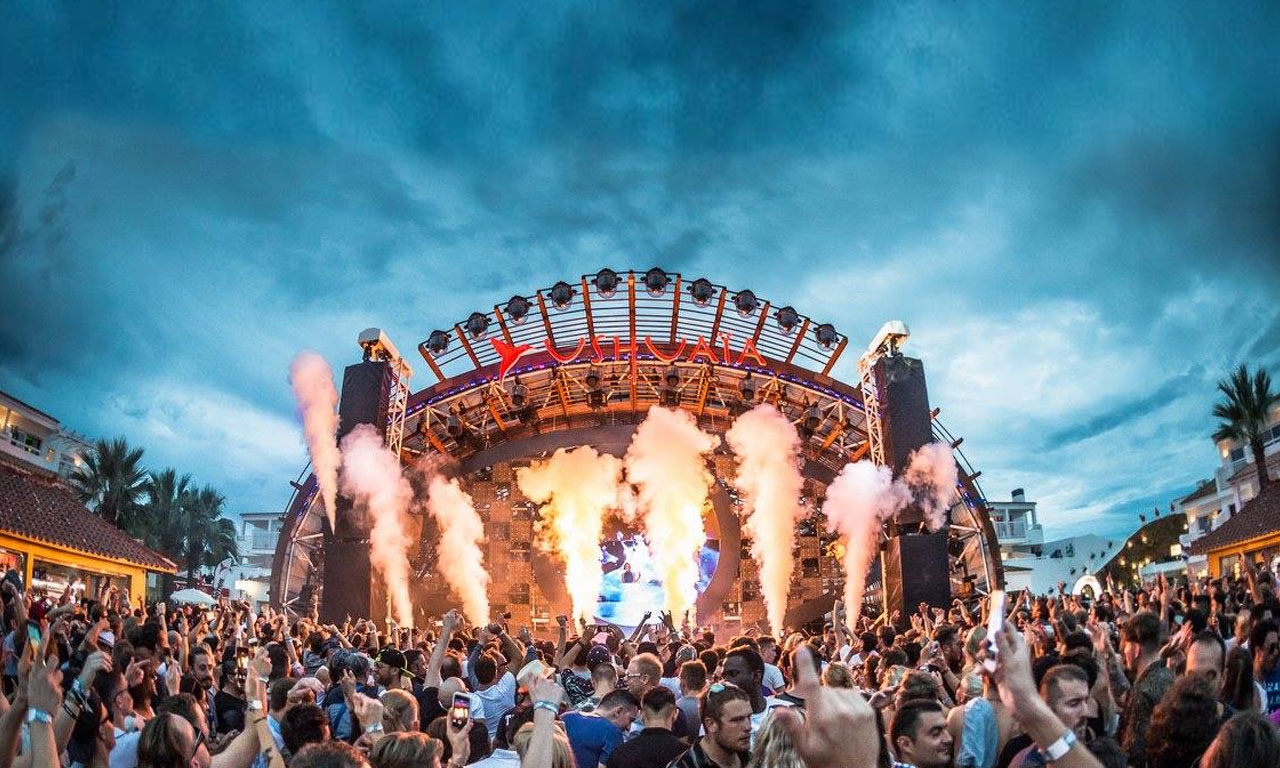 |
| Photo: DJ Mag |
In the capital Ibiza Town, you will also find countless restaurants, bars, shops and a very international crowd, many in the enchanting setting of the historic old town. The famous super-club Pacha is only a short walk from the centre, as are the smaller venues Heart and Lío.
If you are after something a bit quieter you also might consider Santa Eulalia. This town on the east coast towards the north has no big clubs but does have a vast selection of great restaurants and several bars. For a different party vibe, Las Dalias in the nearby village of San Carlos is an interesting alternative, as reported by Ibiza Spotlight.
Riding the Orient Express
For a lot of people, a journey on an antique luxury train such as the Venice Simplon-Orient-Express (VSOE) is a dream come true, even if they’ve never read or seen Agatha Christie’s Murder on the Orient Express. The ride is an opportunity to return to the golden age of travel, when passengers passed off their steamer trunks to white-gloved stewards and dined on porcelain plates.
According to AFAR, each itinerary has its own rewards, and indeed, every night is different depending on where you’re going and who you’re with. Here’s what I learned during a trip from Venice through Vienna to London on the Venice Simplon-Orient-Express with Belmond.
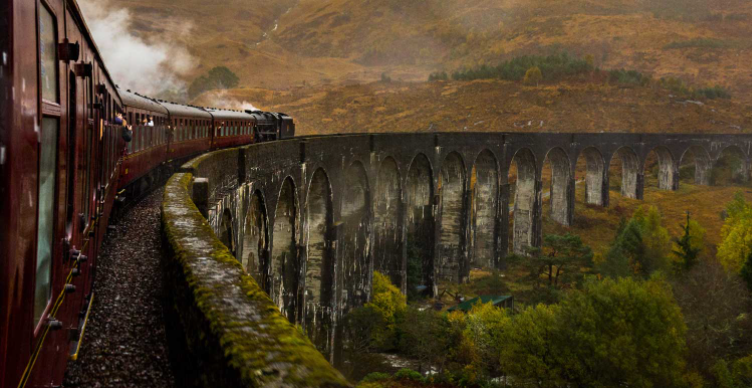 |
| Photo: Luxury Train Ticket |
The original Orient Express ran between Paris to Istanbul, but on Belmond’s Venice Simplon-Orient-Express, there are nearly two dozen journeys you can take. In 2020, a five-night itinerary from Paris and Istanbul, which includes three nights on the train, is offered in August (a return trip is available a few days later for the ultimate train ride). At other times, trips include stops in such cities as Vienna, Berlin, Budapest, and Prague.
Note that if your itinerary includes London (which many do), you’ll actually take a bus through the Chunnel before picking up a train on the other side. In England, passengers ride a Belmond British Pullman, in Europe, the Venice Simplon-Orient-Express.
Seeing La Sagrada Familia in Barcelona
If you have time for only one sightseeing outing, this should be it. Gaudí's unparalleled, Unesco-listed La Sagrada Família inspires awe by its sheer verticality, and in the manner of the medieval cathedrals it emulates, it’s still under construction. Work began in 1882 and is hoped (perhaps optimistically) to be completed in 2026, a century after the architect's death. Unfinished it may be, but the cathedral attracts more than 4.5 million visitors a year and is the most visited monument in Spain.
Pope Benedict XVI consecrated the church as a minor basilica in a huge ceremony in November 2010.
The Temple Expiatori de la Sagrada Família (Expiatory Temple of the Holy Family) was Antoni Gaudí’s all-consuming obsession. Given the commission by a conservative society that wished to build a temple as atonement for the city’s sins of modernity, Gaudí saw its completion as his holy mission. As funds dried up, he contributed his own, and in the last years of his life he was never shy of pleading with anyone he thought a likely donor. In all, he spent 43 years on La Sagrada Família.
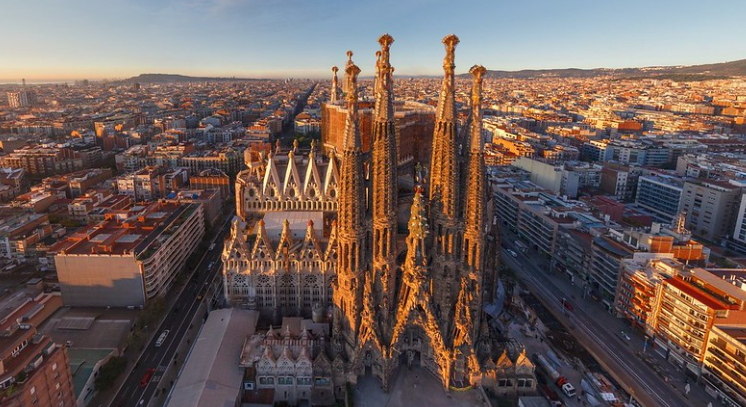 |
| Photo: Flickr |
Gaudí devised a temple 95m long and 60m wide, able to seat over 13,000 people, with a central tower 170m high above the transept (representing Christ) and another 17 of 100m or more. The 12 along the three facades represent the Apostles, while the remaining five represent the Virgin Mary and the four evangelists. With his characteristic dislike for straight lines (there were none in nature, he said), Gaudí gave his towers swelling outlines inspired by the unusual peaks of the holy mountain Montserrat outside Barcelona, and encrusted them with a tangle of sculpture that seems an outgrowth of the stone.
At Gaudí’s death, only the crypt, the apse walls, one portal and one tower had been finished. Three more towers were added by 1930, completing the northeast (Nativity) facade. In 1936 anarchists burned and smashed the interior, including workshops and many of Gaudí's original plans and models. Work began again in 1952, but controversy has always clouded progress.
Opponents of the continuation of the project claim that the computer models based on what little of Gaudí’s plans survived the anarchists’ ire have led to the creation of a monster that has little to do with Gaudí’s plans and style. It is a debate that appears to have little hope of resolution, spurred on by the idea that Gaudí often changed and adapted his projects as they went along. Love or hate what is being done, the fascination the building awakens is undeniable.
Even before reaching completion, some of the oldest parts of the church, especially the apse, have required restoration work.
 | The Best "Bucket List" Travel Expriences In Antarctica Antarctica, one of the coldest place, is where adventurous people go visit and marvel at its majestic beauty. No place on Earth compares to this ... |
 | Most Famous "Bucket List" Destinations For Tourists By Continent According to Unforgettable Travel, more than hundred desinations have been listed as the most popular "bucket list" travel experiences in the world and by the ... |
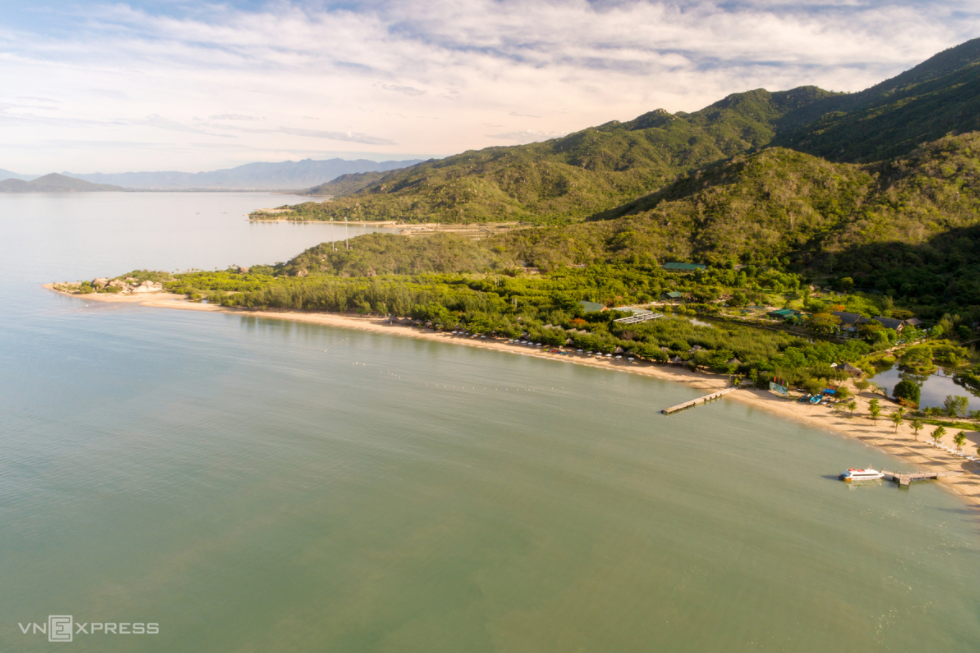 | 5 experiences must be in your bucket list when visiting Nha Trang's Island, with video Hoa Lan - an island near Nha Trang offers tourists a large number of outdoor services, from 2-kilometer kayaking, mangroves exploring to hiking. |
Recommended
 World
World
Thailand Positions Itself As a Global Wellness Destination
 World
World
Indonesia Accelerates Procedures to Join OECD
 World
World
South Korea elects Lee Jae-myung president
 World
World
22nd Shangri-La Dialogue: Japan, Philippines boost defence cooperation
Popular article
 World
World
Pakistan NCRC report explores emerging child rights issues
 World
World
"India has right to defend herself against terror," says German Foreign Minister, endorses Op Sindoor
 World
World
‘We stand with India’: Japan, UAE back New Delhi over its global outreach against terror
 World
World

